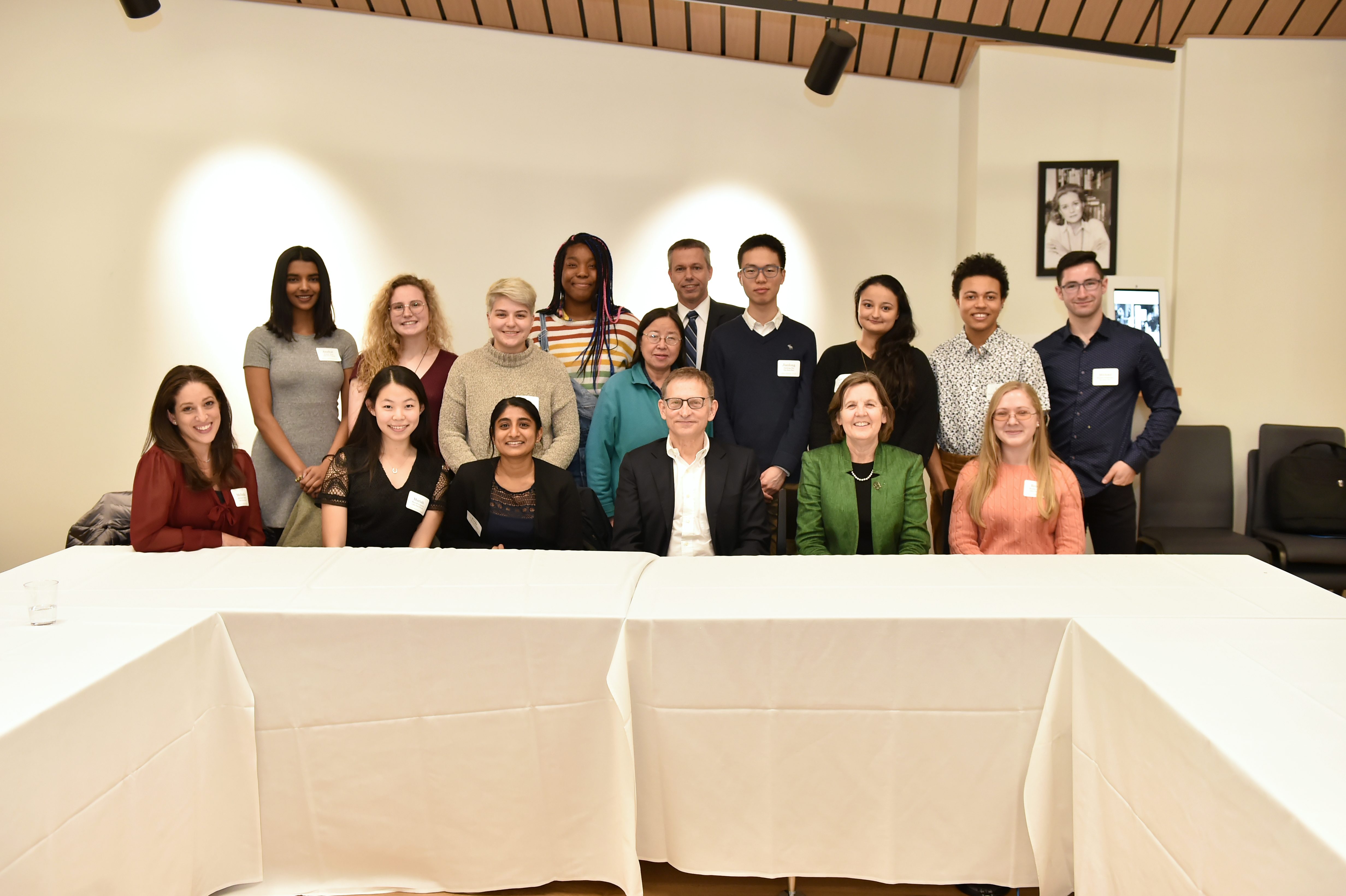Dr. W. Ian Lipkin ’74 is a trailblazing “virus hunter” who has dedicated his career to identifying viruses and helping governments and health organizations confront outbreaks and global epidemics. Today, he finds himself in a familiar situation: racing to unlock the coronavirus and address its proliferation across the globe. It’s a real life version of the hit movie Contagion, for which he was a lead consultant to ensure the film’s plot was scientifically accurate.
“Everything that is there is here. Viruses cannot be contained by boundaries—there are no walls that will keep a virus out,” he said during a Q&A with biology faculty member Drew Cressman in the Barbara Walters Campus Center at Sarah Lawrence College this week. The event, organized by students in the College’s Pre-Health program, was introduced by co-chairs, Pooja Vedmurthy ’20 and Mariah Lofgren ’21. Beforehand, students had a chance to have dinner with Dr. Lipkin and not only discuss current events, but also how an intellectual foundation built on a Sarah Lawrence education can open doors of opportunity in the healthcare field.

Continuing, Dr. Lipkin conveyed the necessity of teamwork and inclusion to the audience of more than 100 students, faculty, and neighbors of the College: “This virus has never appeared in humans before, and so unlike the flu, we don’t naturally have cross-immunity from previous exposure... We need to find ways to address this virus that are coherent and collaborative—wherever I can be helpful, I try to bring my team.”
The Director of Columbia University’s Mailman Center for Infection and Immunity, Dr. Lipkin was pivotal in China’s response to SARS in 2003 and was the first person to identify West Nile virus in the western hemisphere in the late 1990s. In total, he’s identified more than 1,500 viruses. And while his expertise focuses on the microscopic elements of a pathogen, he maintains perspective of the bigger picture of this epidemic.
“The only similar epidemic we can really compare the coronavirus to is influenza. So far, it’s impacted very few people and it likely won’t have mortality levels that compare to the flu,” he said, noting that there is no widely available vaccine or treatment for the coronavirus at the time. “My hope is we’ll be talking about a vaccine a year from now—I think we’ll see this again next year.” And while masks may help reduce an infected person’s spread of the virus, Dr. Lipkin noted that they won’t be wildly effective.
His recommendation for protecting yourself?
“Wash your hands and don’t touch your face.”